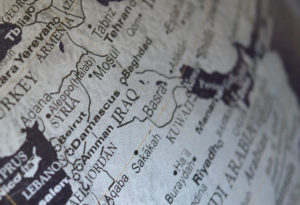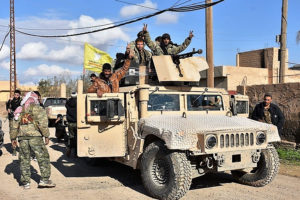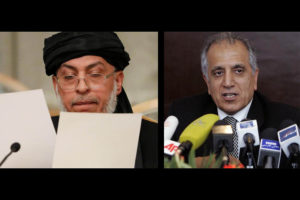
ROSEMONT, Ill. — If Muslims want to improve their image in America, they have to get involved in their communities and proactively talk Islam before controversies arise, leading Muslim figures told 40,000 people gathered at the continent’s largest Islamic convention this weekend.
The message, echoed among dozens of panels and discussion groups at the Islamic Society of North America’s annual meeting in suburban Chicago, comes after a difficult year for American Muslims. Several states have passed or proposed bans of Islamic law, mosque construction projects have met ferocious opposition and polls have shown that many Americans have a negative perception of the religion.
Panels carried titles such as “Muslims Under a Microscope,” “Anti-Sharia Initiatives: How to Respond” and “Not in My Backyard,” regarding to anti-mosque construction campaigns. The sessions at ISNA, which were based upon the requests of members, indicated that Muslims are also concerned about the state of their religion as the 10th anniversary of 9/11 approaches.
“We have to balance the internal needs of the Muslim-American community with our need as Muslims to defend Islam,” said Ingrid Mattson, a member of ISNA’s executive council and a professor of Islamic Studies and Christian-Muslim Relations at Hartford Seminary. “We have to constantly battle those negative threats to define us.”
ISNA’s four-day convention, which ends Monday, drew top scholars and religious leaders of the estimated 2 million Muslims in the U.S. and also attracted a sizable Canadian contingent. The attendees included imams, activists, womens’ issues advocates and Muslim professionals, but also among them were dozens of Muslim-oriented businesses and community groups.
In a vast bazaar that smelled or rosewater and incense, vendors hawked pre-packaged Halal chicken patties next to publishers selling Quranic translations and commentary in dozens of languages and vendors distributing brightly-colored headscarves and abayas, full-body robes for women.
Shariq Abdul Ghani, a graphic designer from Houston, was giving out free T-shirts at one booth. “Jesus and Mary were Muslim, too,” read a bright orange one decorated with a drawing of a tree branch. “Islam is pretty awesome. 1.7 billion people like this,” said another, mimicking the Facebook icon.
“We feel the best way to change the attitudes and opinions of those living in America is through informing and not preaching,” said Ghani, who launched the Mineret Foundation with a group of Texan professionals last year to teach non-Muslims about Islamic beliefs. The group runs web sites, such as CuriousAboutIslam.com, with the aim of “pitching” Islam to non-Muslims in an informative, entertaining way. “Everyone in America has the right to be informed about the different aspects of Islam in a way they can relate to and understand,” Ghani said.
Islam has no religious hierarchy and few national Muslim groups cover the spectrum of theology, activism and community engagement among Muslims, making ISNA unique among religious events in the United States. The convention drew from Sunni and Shia schools of Islam, which comprise the majority of Muslims practices.
The annual gathering is also significant among young Muslims who are looking to marry, and included a handful of popular sessions on matchmaking, marriage and family development.
About a hundred Muslims showed up for a panel Sunday on “Observing Islam in Everyday Life,” where Islamic scholars gave advice on how to reconcile Islamic law and western traditions. That included discussion of Islamic financing and the stock market. Muslims should look for Islamic bank loans when buying homes to avoid paying interest, which is banned in the religion, but purchasing and selling stock at a profit is okay because it it similar to selling any other good, the scholars of the Fiqh Council of North America said.
But largely, the specter of some Americans’ views of Islam loomed over many discussions.
“The average American is scared of Islam because he doesn’t know about Islam,” said Yasir Qadhi, a popular conservative cleric and dean of academic affairs of AlMagrib Insitute, a network of Islamic schools in the U.S. He spoke at a panel on “Islamophobia: Opportunities, Challenges and Responsibilities for Dawah,” or the spreading of the religion.
Qadhi told Muslims to turn to the Quran, with it story of the hardships endured by the prophet Muhammad, when faced with challenges in their own communities.
Qadhi quoted a verse from Surat Ash-Sharh, a portion of the Quran: “Therefore, recall, with every difficulty, there will be ease.”






